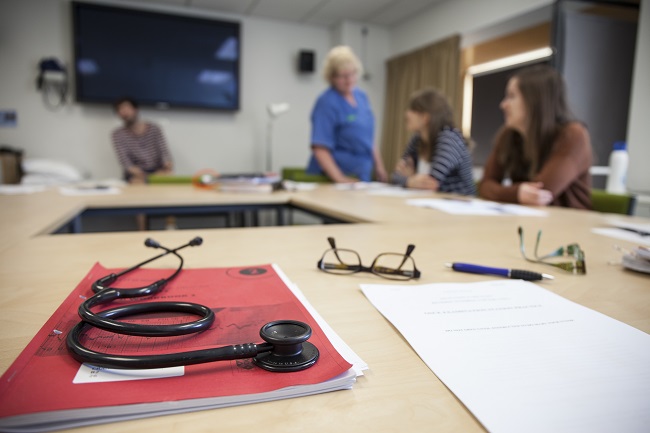
The future of bio-medical research is in safe and exciting hands judging by the quality, variety and scope of presentations made by students at both a Poster Evening and Postgraduate Symposium staged by the Otago School of Medical Sciences at the Otago Museum's Hutton Theatre.
Twenty-one postgraduate students (including two from the University of Queensland's School of Biomedical Sciences) were joined at the event by Prof Vernon Ward, Dean of the OSMS, and Prof Greg Cook of the Department of Microbiology and Immunology.
Also attending were Associate Professors Conrad Sernia and Peter Noakes from the University of Queensland who delivered a talk 'The training of a global scientist: current experience and future directions'.
From brain research to microbial communities
Topics covered by the posters and the presentation talks underlined the passion, commitment and ingenuity of the students who dealt with subjects ranging from latest brain research including tumours to Parkinson's disease, the treatment of drug resistant TB and colorectal cancer to the use of microbial communities as a diagnostic tool for assessing farm soil health.
The winners of the poster event were: 1st - Safina Gadeock (Physiology: Enteroids- a model of the colonic epithelium in IBD), 2nd - Rachel Heron (Microbiology and Immunology: BcrR – a novel regulator in antibiotic resistance), 3rd - Hannah Hampton (Microbiology and Immunology: Investigating the mode of action of the type 1V AbiE toxin-antitoxin phage resistance system).
The winners of the presentation talks were: 1st - Colin Davies (Microbiology and Immunology: Murine norovirus manipulation of the host cell cycle), 2nd - Megan Elder (Anatomy: Secreted amyloid precursor protein alpha regulates protein synthesis in primary hippocampal neuronal cultures), 3rd - Braeden Donaldson (Microbiology and Immunology: Combination immunotherapy for colorectal cancer with oncolytic VSV and chimaeric RHDV VLP vaccines). Safina and Colin have both won a trip to the University of Queensland School of Biomedical Sciences symposium later this year.
Speakers followed
Distinguished Prof Margaret Brimble of the University of Auckland's Faculty of Science opened the symposium by stressing the importance of the role played by chemistry in underpinning all commercial drug development.
Physiologist Prof Alison Heather in a talk entitled 'Follow your heart' outlined her own professional and personal accomplishments - including becoming an expert in identifying designer androgens some athletes use to enhance performance - to illustrate the many diverse and fascinating opportunities offered by a career in medical research. A sportsperson herself, she has completed a large number of ironman, marathon and half marathon competitions and is presently in training for both the NZ and Australian ironman events.
Also part of the event, University of Queensland's Dr Jana Vukovic (UQ) spoke on the 'Role of microglia in mediating exercise-induced neurogenesis' and Assoc Prof Karen Moritz spoke on 'The life-time legacy caused by drinking in the womb'.